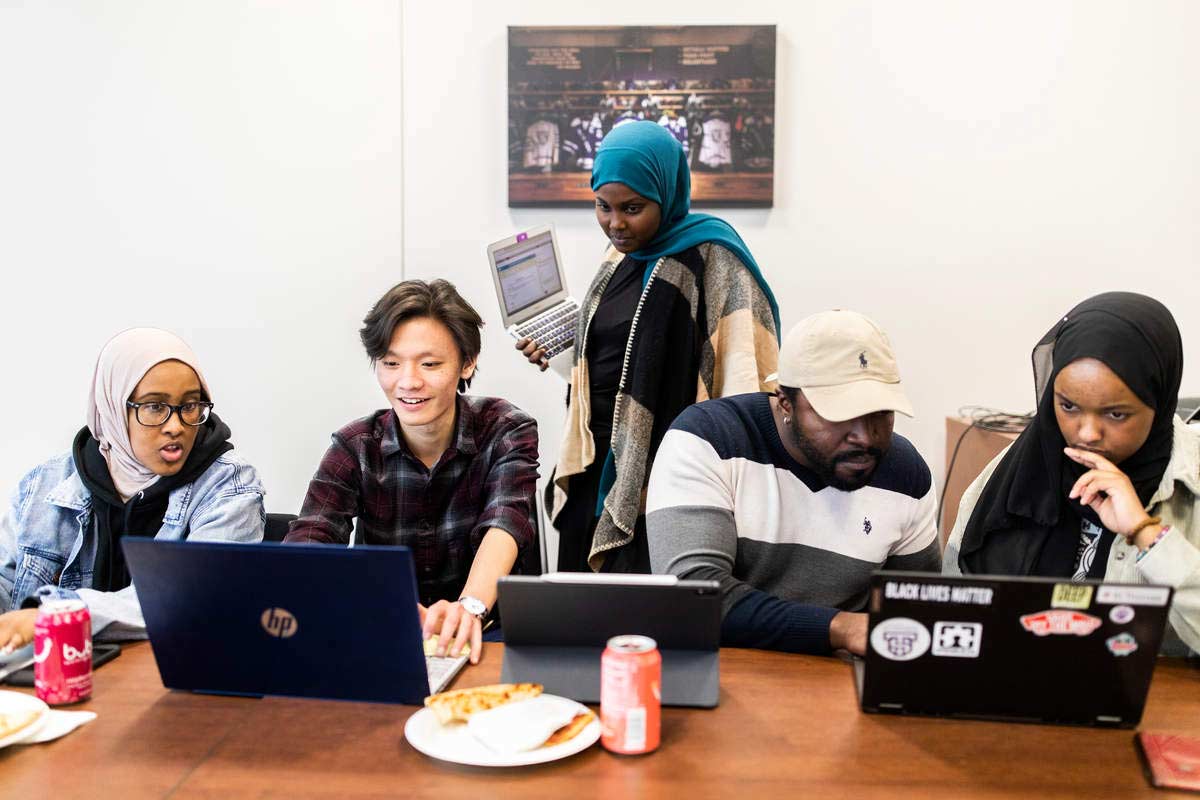
Degrees and Programs
It takes more than theory to transform an idea into useful technology for our society. St. Thomas Engineers are given practical hands-on experience through extensive labs, industrial partnerships and the technical depth of our fully accredited engineering curriculum. And, as important, our students receive the broad perspective of a Liberal Arts education to stand out and truly make a difference.
Dive into a challenging undergraduate experience involving calculus, physics, philosophy, ethics, foreign language and an externally sponsored Senior Design Project, which is a hallmark of the undergraduate engineering program at St. Thomas. You'll also be asked to roll up your sleeves, get your hands dirty, and wrap your mind around ideas that have the potential to change our world.
Our engineering graduates go on to work in the following industries:
- Civil engineers are hired in construction, water utilities, transportation, geotechnical, environmental, structural and materials engineering.
- Computer engineers work in most industries including computer, aerospace, medical device, telecommunications, power production, manufacturing, defense and electronics industries.
- Electrical engineers work in IT, manufacturing, telecommunications, aerospace, navigation, power generation and distribution, medical devices and architectural firms.
- Mechanical engineers find employment in a various industries including aerospace, automotive, medical devices, chemical, construction, defense, electronics, consumer goods, materials, and utilities.
Undergraduate Degrees and Programs
ENGINEERING MAJORS
DUAL DEGREES (BACHELOR OF SCIENCE + BACHELOR OF ARTS)
The School of Engineering currently offers the following dual degree programs:
- BS in Civil Engineering and BA in General Business Management
- BS in Computer Engineering and BA in General Business Management
- BS in Electrical Engineering and BA in General Business Management
- BS in Electrical Engineering and BA in Physics
- BS in Mechanical Engineering and BA in General Business Management
- B.S. Engineering (Civil/Electrical/Computer/Mechanical) and B.A. German
If you have an interest in another combination of degrees, please consult with your academic advisors. In the past, we have had graduates in Engineering and Business, Engineering and Spanish, Engineering and History, Engineering and Music/Art, and Engineering/Divinity.
FAST TRACK MASTER’S (B.S. + M.S. IN 5 YEARS)
Students who earn their B.S. can go on to earn their master’s with as few as eight additional classes, saving time and money. With careful planning, it is possible to finish mechanical and electrical engineering degrees from St. Thomas in as few as five years for both degrees. Degree options exist for engineering students both from the graduate engineering and graduate software programs.
ENGINEERING MAJORS
DUAL DEGREES (BACHELOR OF SCIENCE + BACHELOR OF ARTS)
The School of Engineering currently offers the following dual degree programs:
- BS in Civil Engineering and BA in General Business Management
- BS in Computer Engineering and BA in General Business Management
- BS in Electrical Engineering and BA in General Business Management
- BS in Electrical Engineering and BA in Physics
- BS in Mechanical Engineering and BA in General Business Management
- B.S. Engineering (Civil/Electrical/Computer/Mechanical) and B.A. German
If you have an interest in another combination of degrees, please consult with your academic advisors. In the past, we have had graduates in Engineering and Business, Engineering and Spanish, Engineering and History, Engineering and Music/Art, and Engineering/Divinity.
FAST TRACK MASTER’S (B.S. + M.S. IN 5 YEARS)
Students who earn their B.S. can go on to earn their master’s with as few as eight additional classes, saving time and money. With careful planning, it is possible to finish mechanical and electrical engineering degrees from St. Thomas in as few as five years for both degrees. Degree options exist for engineering students both from the graduate engineering and graduate software programs.
Specialized Degree and Study Options
Enhance your resume and stand out in your field.

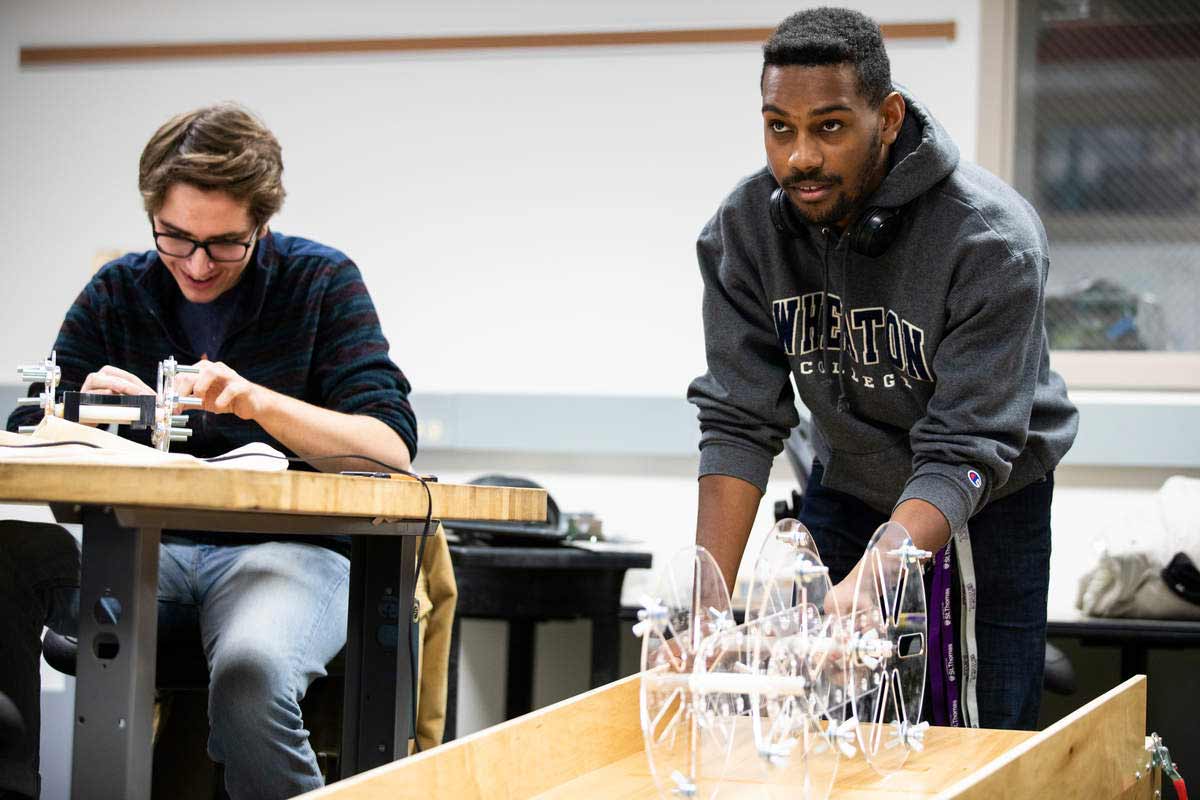
Study Abroad
Engineering students at St. Thomas can fit study abroad into a four-year academic plan and all your credits count—so you can still finish in four years.
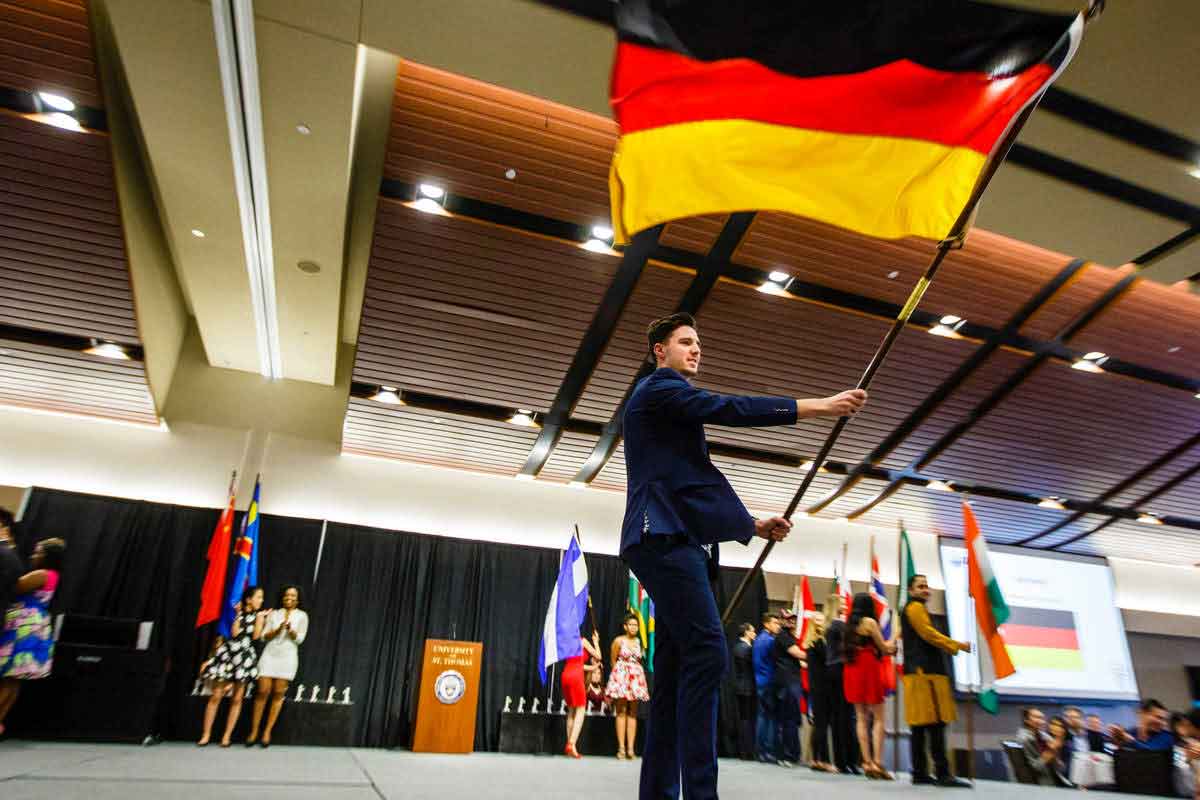
German and Engineering Dual Degree
This five-year program is highlighted by two industrial internships (one local, one in Germany) that prepare graduates for meaningful careers in a globally minded and diverse world.
FACULTY
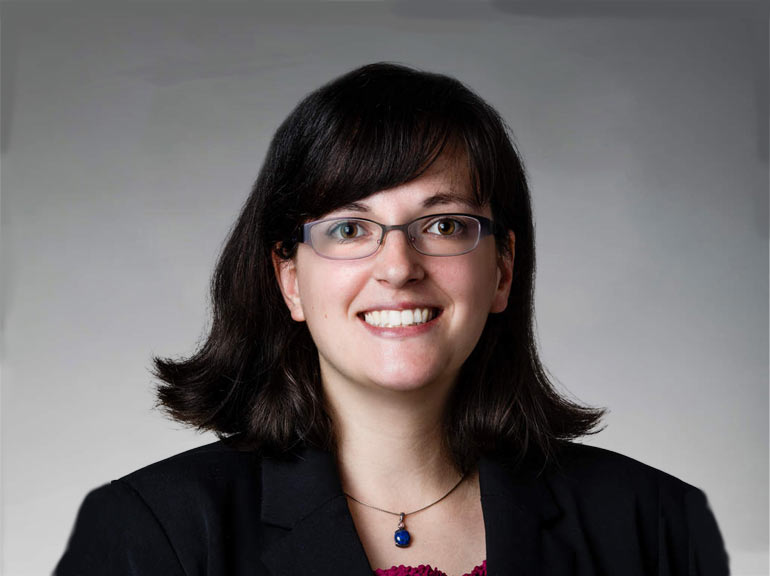
Dr. Rita Lederle
Dr. Lederle is interested in improving infrastructure through materials, design, and construction and maintenance techniques. Her past research has focused on concrete pavements and bridges, with an emphasis on practical, implementable solutions. Prior to joining the faculty of St. Thomas, Dr. Lederle worked as a structural design engineer for both the Minnesota and Wisconsin Departments of Transportation.
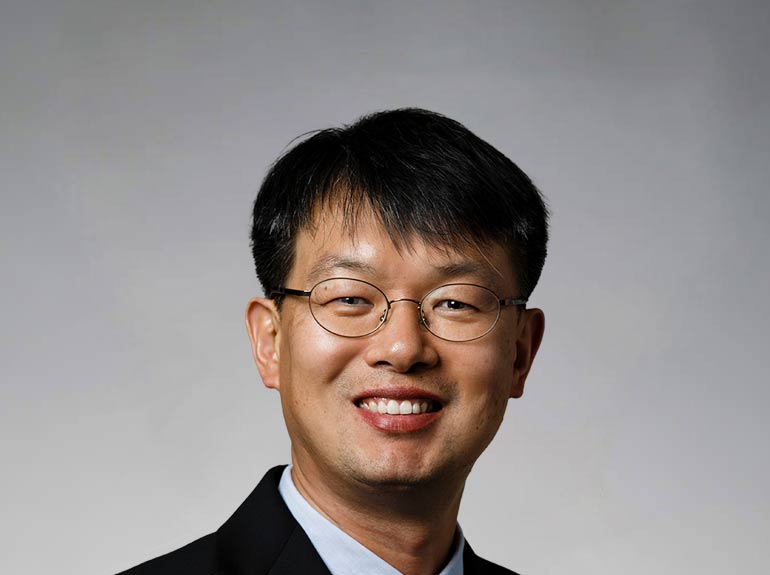
Dr. Cheol-Hong Min
Dr. Min has a background in electrical and computer engineering with emphasis in signal processing and wearable technology. His interests include: wearable technology, context aware sensing, human computer interaction, machine learning, signal processing, image and video processing and robotics.
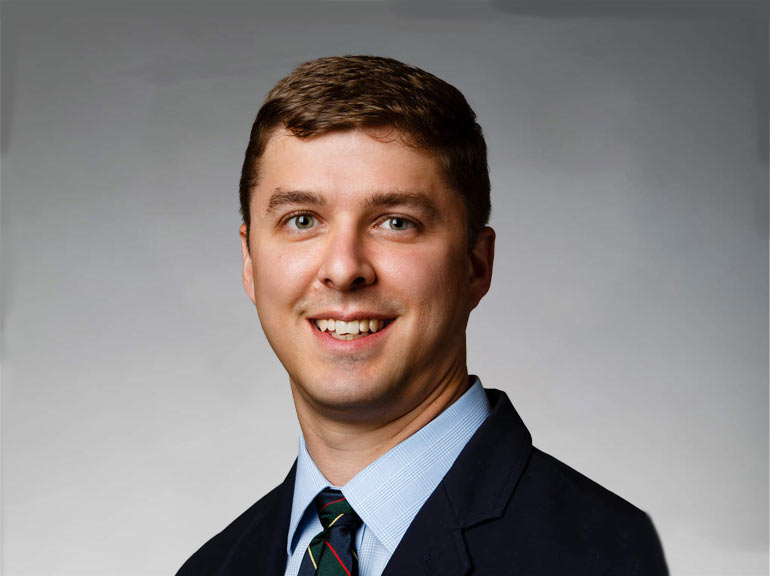
Dr. Thomas Secord
Prior to joining St. Thomas in 2016, Dr. Secord spent six years at Medtronic working on the development and testing of bio-prosthetic trans-catheter heart valves. His work at Medtronic encompassed many aspects of structural design, accelerated testing, and regulatory approval for implantable devices. His current research interests are centered on overcoming actuator performance limitations at the intersection of robotics and medical devices.
